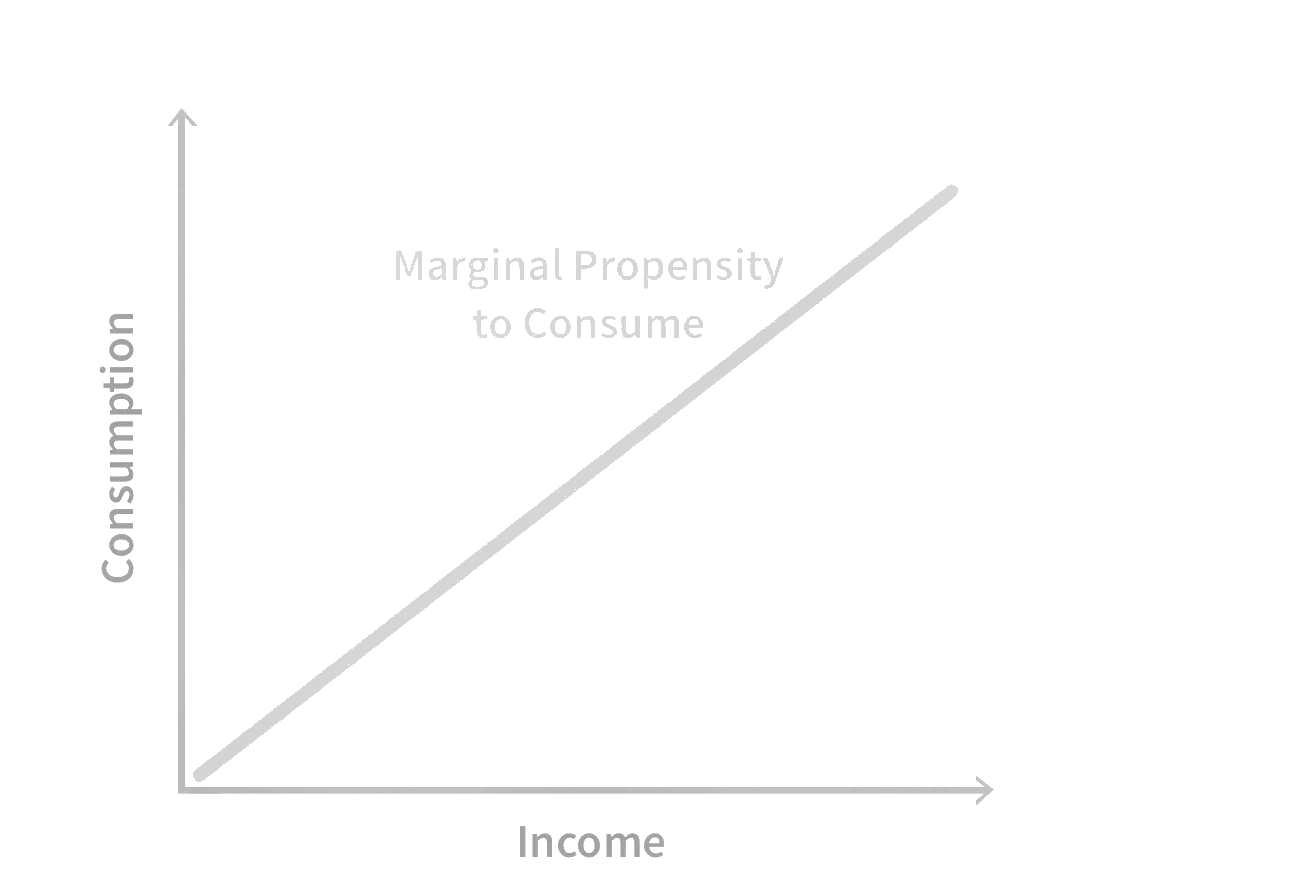Marginal Propensity to Consume or MPC is an important component of the Keynesian macroeconomic theory. This theory suggests that the individual has a propensity to consume more with an additional rise in income.
In other words, Marginal Propensity to Consume (MPC) measures the proportionate rise in the consumption with increase in income or we can say it measures the proportion of extra pay that is spent on consumption of goods and services rather than saving it.
Marginal Propensity to Consume or MPC is dependent on the income level. It may vary with the income levels and it can be seen that the MPC is lower at higher income levels.
MPC can be calculated by determining the change in consumption divided by the change in income.
MPC is represented by the consumption line, which is a sloped line that is formed when change in consumption is plotted on the vertical y-axis with change in income on the horizontal x-axis.

Importance of MPC
MPC has always been concerned with the relationship between the consumption and changes in income. It is considered that higher income levels lead to lower consumption which leads to low MPC.
MPC also is a key determinant of the multiplier effect which is the impact of increased investment or government spending that results in increase in GDP.
MPC plays a key role by controlling the size of the multiplier as a higher MPC will result in a greater multiplier effect, while a lower MPC means low impact on the multiplier.
This can be illustrated from the following formula.
k = 1/ 1- MPC
Where k = Multiplier effect
MPC = Marginal Propensity to Consume
Calculating MPC
MPC can be calculated with the following formula
MPC = Change in Consumption (ΔC) / Change in Income (ΔY)
The value of MPC varies between 0 and 1 normally, but sometimes it can exceed 1, if the need for consumption is more than the change in income.
Types of MPC
MPC can be classified into three types, which are
1. MPC more/greater than 1
2. MPC equal to 1
3. MPC less than 1
MPC greater than 1: When MPC value is greater than 1, it signifies that changes in the income levels have triggered a higher level of consumption which surpasses the value of 1. For e.g, if Ram earns a bonus of 1000 and they spent 2000 on purchasing goods.
Then the MPC will be 2. This spending can be attributed to autonomous consumption, which suggests that spending is not based on level of income.
It says that an individual having zero income will still feel the need to have enough food to eat and for that they could borrow or break down their existing savings.
MPC equal to 1: When the MPC is equal to 1, it shows a proportionate increase in income levels leading to an equal increase in the consumption of goods.
MPC less than 1: When MPC will be less than 1, there will be a proportionately smaller increase in the consumption with respect to the change in income levels.
Factors determining MPC
Following factors are responsible for determining the MPC:
Income Levels: The levels of income have an impact on the MPC as a person having a low income level on receiving a boost in income will be looking forward to acquiring many such items that leads to more consumption.
In contrast to that, a person with a higher income level on receiving an income boost will be more interested in savings as he has most of the items necessary for consumption available with him.
Type of Increase in Income: The type of increase in income also has an impact on the MPC as increase in income can be either temporary or permanent. An individual with a temporary rise in income (obtained through bonus or incentives) will be interested in saving that amount, whereas a person receiving the same amount of increase in income, on a permanent basis will be more inclined towards consumption.
Interest Rates: Higher interest rates can encourage individuals towards savings rather than consumption, at the same time, higher interest rates can increase in income from the savings, which leads to more consumption.
Consumer Confidence: If the consumer confidence in the economy is high, it can result in people increasing their consumption. If the mentality of the population is pessimistic which can be due to rising unemployment or recession, it will result in delay in purchasing decisions, which can result in a lower MPC.
This concludes our article on the topic of Marginal Propensity to Consume, which is an important topic in Economics for Commerce students. For more such interesting articles, stay tuned to BYJU’S.
|
Important Topics in Economics: |
Comments